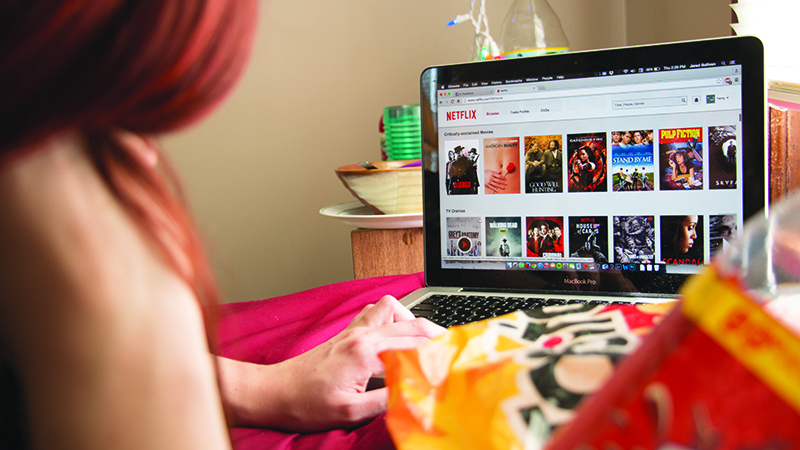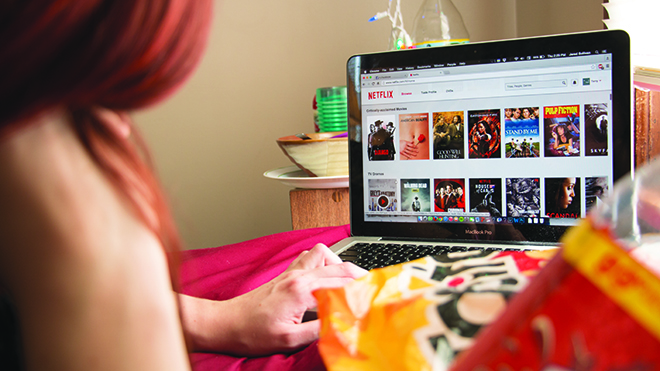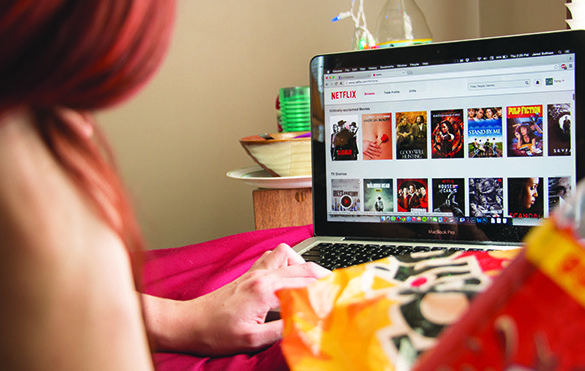
We’ll spend a weekend with roommates watching “Scandal”, a few hours in between classes catching up on “Orange Is the New Black” or end a night full of homework with some “House of Cards”. We all have a general idea of what the term “binge watching” means, but what is it really? Most dictionaries say it’s watching multiple episodes in a row. But according to a survey organized by Netflix, Harris Interactive concluded that binge watching means consuming “Two to six episodes of the same series in one sitting.” In another study, the University of Texas described it as watching “Two to three episodes in one sitting.” Regardless of the complexities of this definition debate, how does binge watching play a role in our lives?
Who’s watching?
“Americans between [the ages of] 18 and 39 are more likely to watch television on demand compared to other age groups,” a Harris Interactive poll said. Americans with children are also more likely to participate in binge watching.
How does it make you feel?
Figuring out the emotional impact of binge watching is difficult because of the little research that’s available, but we do know people who feel more depressed tend to watch more often. University of Texas researchers found that binge watching was linked to depression, loneliness and a lack of self-control—the activity didn’t cause those behaviors, but rather contributed to them. Watching everything at once could also make the experience less enjoyable. In an interview with NBC News, Columbia professor John Black said the process of binge watching was similar to taking drugs. The more you take in the more “you kind of get dull to it and you’re not really appreciating the show,” Black said.
Does it interfere with life?
Maybe. Binge watching can cross the line to addictive behavior.
“I can watch until I fall asleep if I have nothing to do,” said sophomore criminal justice and psychology major Channon Williams.
Binge watching can also make life more stressful if it’s not balanced with getting work done.
“Once I start watching I don’t really stop, so if I have homework to do I usually put [watching TV] off,” said junior speech pathology major Katie Simmons. “Usually I won’t binge watch unless it’s the weekend and I know I don’t have anything going on, or I’ll make sure I have my work done before I start a show.”
What about the state of storytelling?
People always choose their favorites to watch first, according to the Harris Interactive poll. The other top factors in deciding what to watch include wanting to know what happens next, time constraints and not wanting to risk spoilers and mood. Shows are created to intrigue and compel attention through plots and dialogue. A Slate opinion piece argued that binge watching blurs together individual storylines, infringes on the feeling of suspense and alters the understanding of the show’s timeline.
What about your body?
The more episodes of any TV show enjoyed, the higher the chances of gaining weight. According to Harvard School of Public Health, watching too much TV can cause weight gain, Type 2 diabetes and heart disease. Sitting for long periods of time have also been shown to slow down metabolism. And according to researchers, regular exercise may not always fix the damage.




